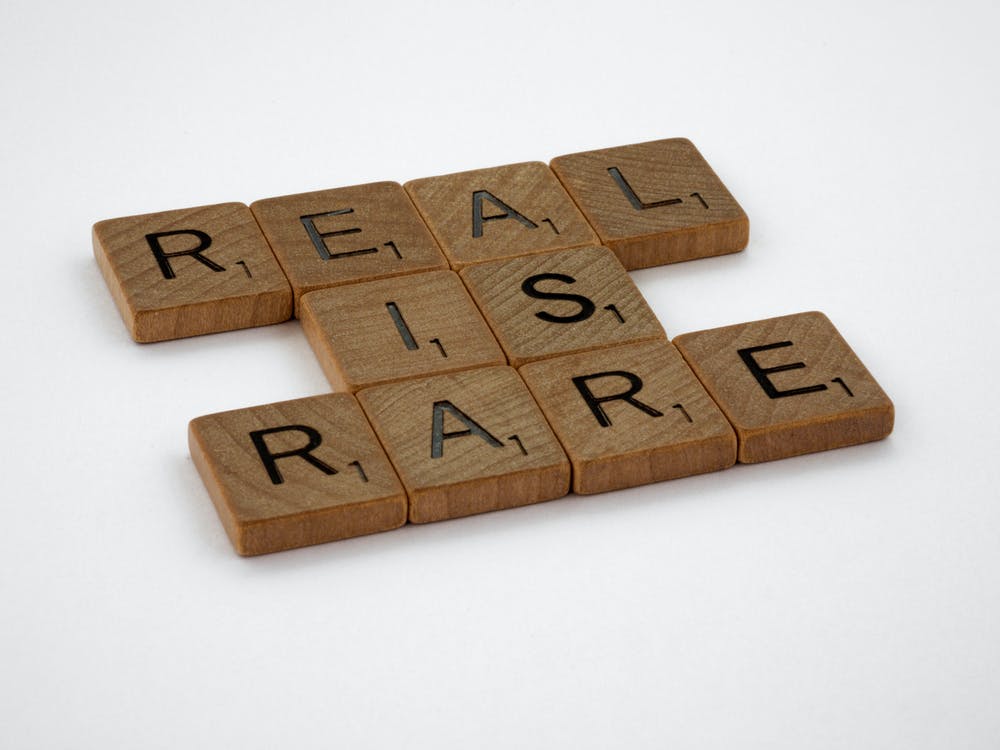When you think about authenticity, what comes to mind? Maybe you don’t really think about it at all. And that would be a shame, because authenticity brings real rewards.
So many people walk around with a whole lot of persona. They present themselves to the world in the way they think others would approve of, in a way they believe is most acceptable, or sometimes in a way that they believe would be most advantageous to them.
It’s appropriate, to some degree, to present ourselves in a socially acceptable manner. We can’t be so insensitive as to completely disregard social norms and do or say anything that comes to mind.
On the other hand, people who put on a social mask in order to deceive, manipulate, exploit or coerce are being inauthentic for very different reasons. These are anti-social individuals who lack a conscience and see other people simply as a means to their ends.
When you think about authenticity, then, you want to consider first, how you might be more authentic in your life, and second, how to protect yourself from those unscrupulous individuals who might be trying to prey on you with their fake charm and charismatic facade.
If you want to be more authentic it starts with knowing yourself. It means that you’ll have to look within and get in touch with your real feelings, needs and values.
Sometimes, we tell ourselves stories about who we are, what we want and what we believe in. We do this either because we’re repeating what we were told as children by our parents, teachers or clergy, or because we think that this is the way we’ll fit into society.
Sadly, when you do this, you become alienated from your true nature and unable to pursue your true goals. Not being true to your authentic self can result in anxiety, depression, frustration, addiction, and a lack of meaning and fulfillment in your life.
When you have the courage to look within and discover who you really are and what you really want, you’ll feel a sense of integration and wholeness within yourself and finally, you’ll be able to be the best version of yourself.
Being authentic also means having more meaningful relationships, because when you’re genuine, people know and like the real you. Obviously, this is a lot more fulfilling than trying to be the person you think other people will approve of and then realizing, deep down inside, that if they aren’t seeing the real you, their affections can’t be directed at the real you.
Being less than fully real in your romantic relationships means that you never feel loved for who you are, and that’s incredibly sad. There’s no point in being a people-pleaser or in trying to espouse values you don’t believe in, when the result of all this is to feel less connected rather than more so.
Intimacy is all about seeing each-other for who you are, and being anything less than fully authentic deprives you of the possibility of real and satisfying intimacy.
On the other side of the coin, protecting yourself from inauthentic people is a real necessity. There are plenty of con artists around, trying to take advantage of your trust in order to sell you products and services you don’t need or exploit you in even more nefarious ways.
You need to be aware of the possibility that someone approaching you with an offer of friendship, romance or a business transaction is not the genuine article, so that you aren’t taken in by their false promises wrapped up in superficial charm.
Practicing healthy skepticism is always a good idea. This doesn’t mean falling into paranoia, but rather, looking at each situation with a clear eye and considering whether the person you’re interacting with might have an ulterior motive, or something more subtle to gain by associating with you.
You need to look at the possible underlying intentions, motivations or hidden agenda of the other person, and also keep an eye out for any discrepancies or inconsistencies in their behaviour or story.
When someone tells you something, it’s common to want to believe them, but remember that other people aren’t necessarily like you. Just because you’re honest and forthright, it doesn’t necessarily follow that everyone else is. Some people are very different than you, and might be lying to your face while giving you the sunniest of smiles.
I’m not suggesting that we all become bitter and cynical, but that everyone should recognize the possibility that what we’re seeing isn’t necessarily what we’re getting. Instead of defaulting into trusting acceptance, perhaps our default mode should be more cautious and considered.
It’s always a good idea to take your time in getting to know another person; to observe their behaviour over several meetings and look for signs of integrity or a lack thereof. Trust shouldn’t be based on the fact that you want to trust. It should be earned by the other person who has shown you, through their actions, that they can be trusted.
Some people say what they mean, and some people don’t. Some people are the genuine article, and some aren’t. You need to take responsibility to determine for yourself who is real and who might be inauthentic. As they say in business and in love, “Caveat emptor: Let the buyer beware!”
Sign up here for my free biweekly wellness newsletter that brings you fresh, thought-provoking content.
Subscribe to my YouTube Channel to watch my series Moving into Autumn with Good Self-Care, where you’ll learn simple tips for taking the best care of yourself and your loved ones this fall season.
Tune in to my Ruthless Compassion Podcast where I go in-depth about topics like mental health, trauma, and loneliness.



